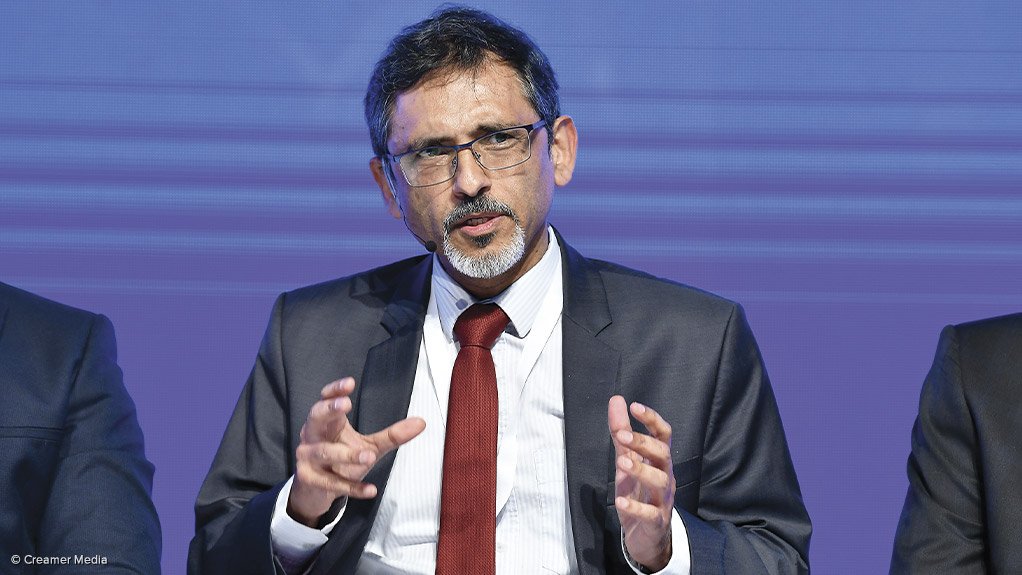Employee share ownership plans (ESOPs) or worker share ownership programmes have enjoyed several successes in South Africa, especially gaining traction in the past five years, and this needs to continue and be bolstered to reach more people and contribute to the country’s economic growth.
Speakers highlighted this during the inaugural Worker Share Ownership Conference, held on April 23, in Sandton, Johannesburg.
Presenting figures that showed the impact of worker ownership schemes, Trade, Industry and Competition Minister Ebrahim Patel informed that there are 125 ESOPs.
He highlighted that ESOPs were spreading across the economy and were not merely being limited to large companies.
This was evidenced by there being 38 ESOPs at companies with less than 250 workers, and 30% of these being small, medium-sized and microenterprises. The smallest ESOP in the database had nine workers, which Patel said showed the spread of these.
He informed that the number of workers in ESOPs was 551 000. Moreover, using a ‘conservative’ multiplier calculation of these benefiting three family member dependants, Patel highlighted that ESOPs reached about 1.54-million South Africans.
Also, he pointed out that 307 000 workers were covered in just the last five years, in ESOPs that were formed, agreed to or re-established.
Looking at the spread across industries, Patel said that owing to the Mining Charter supporting the drive towards broader empowerment, a large number of employees in the mining industry were covered.
The country’s beverage industry also featured highly, as this was often part of the competition conditions when they undertook mergers and acquisitions, besides other transactions, Patel explained.
Providing a breakdown of the figures of workers that benefit from ESOPs across the various industries, he informed that this entails: in the formal sector, one in 16 workers; in manufacturing, one in 15 workers; in mining, two in five workers; and, in beverages, one in two workers.
Patel pointed out, however, that construction and agriculture were lagging, at less that one in 100 employees.
He emphasised the need for these schemes to also benefit women and other groups that were not fairly represented in the economy. In this vein, one large ESOP had 68% women worker share ownership, while several had more than 50% women beneficiaries, Patel highlighted.
He also mentioned that, since 2019, ESOPs with 211 000 beneficiaries had been established from merger conditions under new Competition Act provisions.
Patel acclaimed that the equity or share value contained in ESOPs was R70.3-billion in 118 companies.
This is broken down to 31% in mining, 21% in food and beverages, 14.5% in retail and 14.3% in finance.
Also, R3.3-billion of dividends were paid in the past year, Patel averred, noting that two-thirds of this was in mining with beneficiaries receiving on average R12 800 each.
The event also saw awards handed out to particular ESOPs that had excelled in designated categories.
Also speaking at the event was President Cyril Ramaphosa, who emphasised that the country’s economy was “crippled” by the deliberate exclusion of the majority during Apartheid, and it was still hamstrung by concentration of ownership, with much work required to engender transformation.
He averred that these schemes were valuable instruments to broaden ownership, and with time, to enable greater control of the economy by previously disadvantaged groups, especially women and black South Africans.
Ramaphosa lauded the event, noting that it presented an opportunity to assess the schemes, raise awareness of their existence and potential, and explore strategies to promote more of these within more industries.
He highlighted that the schemes were one of the ways to improve social justice.
Ramaphosa highlighted that such schemes offered employees the opportunity to benefit from profits that they contributed to. He emphasised that workers needed to be properly incentivised and remunerated, proportionally, as top managers were.
Ramaphosa added that the schemes allowed workers a seat at the table where strategic corporate decisions were made.
He said this also provided a greater understanding of the challenges and opportunities facing companies. Ramaphosa posited that when workers were clued in about this, and were invested in the company, they were more willing to work to improve it, which created more profitable companies.
He added that the schemes contributed to better productivity and greater innovation in companies.
He also suggested that it reduced shrinkages, with employees less likely to commit fraud and theft if they were invested in the company.
Ramaphosa said he believed that these schemes made sound economic sense, and were key to building a more resilient economy, with benefits flowing equitably to society.
Looking ahead, he said that key issues that needed to be addressed included developing best practice for ESOPs, looking at funding and dividend polices, and enhancing the governance structures.
EMAIL THIS ARTICLE SAVE THIS ARTICLE ARTICLE ENQUIRY
To subscribe email subscriptions@creamermedia.co.za or click here
To advertise email advertising@creamermedia.co.za or click here











